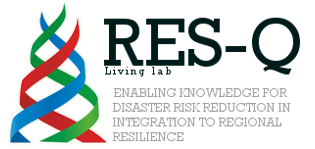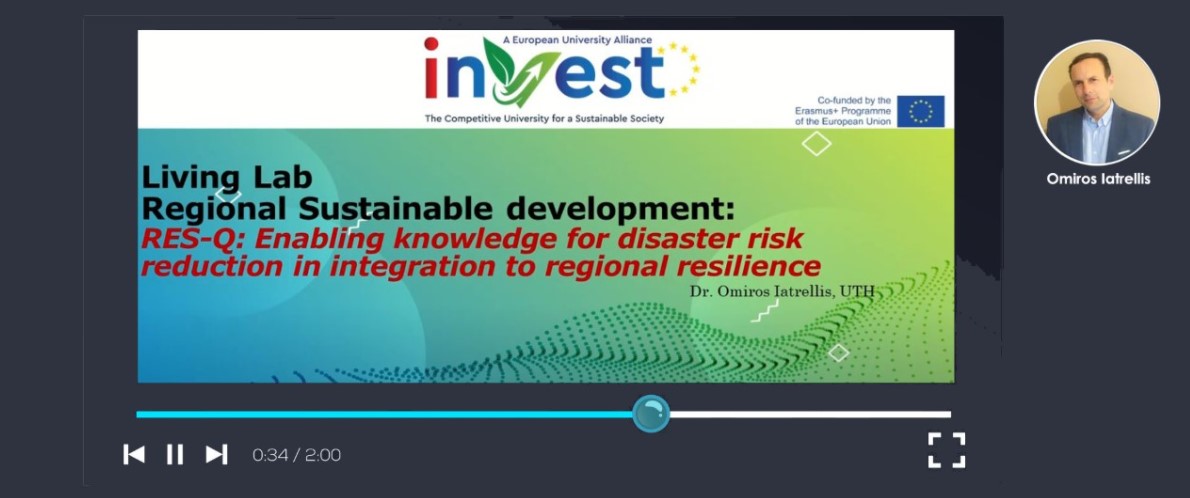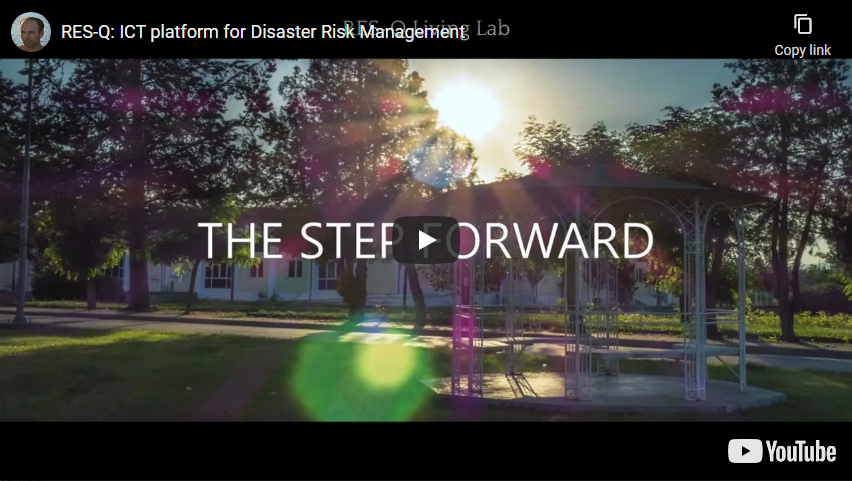
The RES-Q (RESCUE) Living Lab uses cutting-edge science and technology to develop new tools that allow decision-makers and communities to collect, share, and understand risk information and can in turn enable the recommendation and orchestration of the appropriate post-disaster response plans for specific disaster types. The current work is developed with a Living Lab approach in coherence with the INVEST European project.
Under the RES-Q pilot, the areas of the Living Lab - as micro versions of larger territories - can be seen as appropriate sites for validating and spreading new concepts, processes and technologies, serving as showcases at macro level. Thus, scalability and replicability to other regions is strongly embedded in the RES-Q project.
We recognize that there are barriers, inconsistences and fragmentation in the way that information is generated and sent, for example by government agencies and scientists, to those that need it; and how for the targeted receivers - often the ‘key’ end user stakeholders - the information they receive does not always enable an understanding of the information sent, nor then allow people to transform information into useful knowledge that leads to action for better disaster management. Hence, semantic interoperability between the various stakeholders is one of the challenges to be confronted.

The Living Lab will be divided in 3 phases

Phase 1
Students and researchers in collaboration with stakeholders will identify the needed domain knowledge streams semantically related to the crisis/disaster management domain.

Phase 2
All the dimensions of the risk/disaster management domain that will be identified in the previous phase, will be combined to create a holistic conceptual model

Phase 3
Once the common semantic model is finalized, the RES-Q LL will design and implement an ICT system for real-time knowledge sharing, decision making and orchestration of the processes during a crisis or emergency event for the region of Larissa






